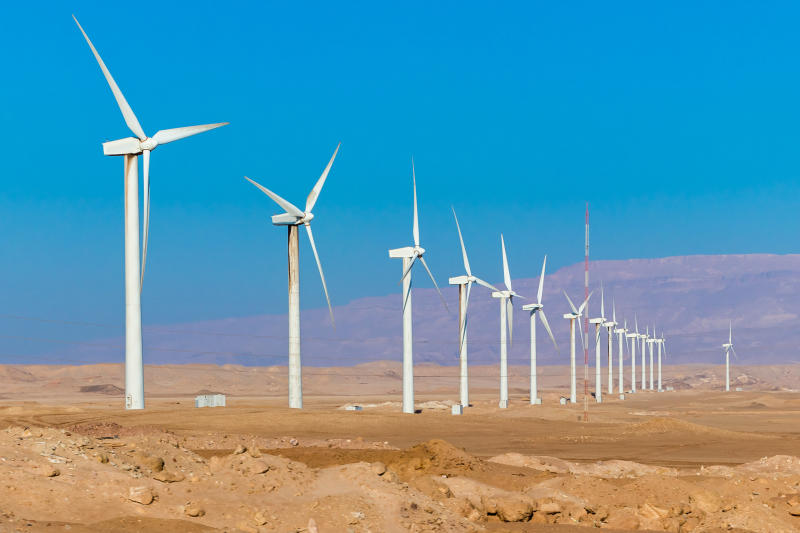Windmills for electric power production the Egyptian desert When it comes to energy production in Africa , renewable sources have been on the rise. This is buoyed by the vast availability of clean energy sources such as the sun, water, geothermal and wind.
Although the transition to renewable energy sources in the last decade has been progressive, gaps in accessibility of the resource continue to widen. With the ever-increasing economic and environmental costs of using fossil fuels and the accelerated impacts of climate change, a transition to renewable energy is imperative.
In 2019, the continent’s Energy Outlook showed that despite hosting 17 per cent of the world’s population, Africa accounted for only 4 per cent of global power supply investment. To achieve reliable electricity supply for all, according to the Outlook, would require about fourfold increase in global power supply investments to approximately $120 billion a year to 2040.
On the economic front, IMF Outlook for sub-Saharan Africa released in 2021 indicates the continent’s economy is expected to grow by 3.4 per cent in 2021. This prediction demonstrates the continent is coming out of the economic lull brought about by Covid-19. This development comes with additional demand for energy to continue powering the continent. KEEP READING
Statistics from the International Energy Agency (IEA) show that as of 2021, despite half of the population in Africa living without electricity, demand for the commodity in the continent stood at 700 terawatt-hours (TWh), and it is expected to reach 1,600 TWh by 2040. This creates a great opportunity for countries in the continent to embrace renewable sources of energy.
Besides growing energy demand, several factors push the need for the resource, key among them the continent’s population growth. With population growth and urbanisation being at the centre of clean energy discussion, of importance is Africa’s manufacturing agenda.
In 2019, World Bank Report predicted that Africa’s population will double by 2040 to reach about 2.4 billion from its current 1.2 billion. Two questions then emerge, do we have adequate energy to sustain such a population? Is the energy we have reliable and safe to the extent that it can anchor economic growth and support global efforts to reduce emission of greenhouse gases?
In order to bring about meaningful environmental change, energy policymakers in Africa ought to consider renewable energy projects to help alleviate the effects of climate change. Energy producers should pick cue too as this reduction can only […]
